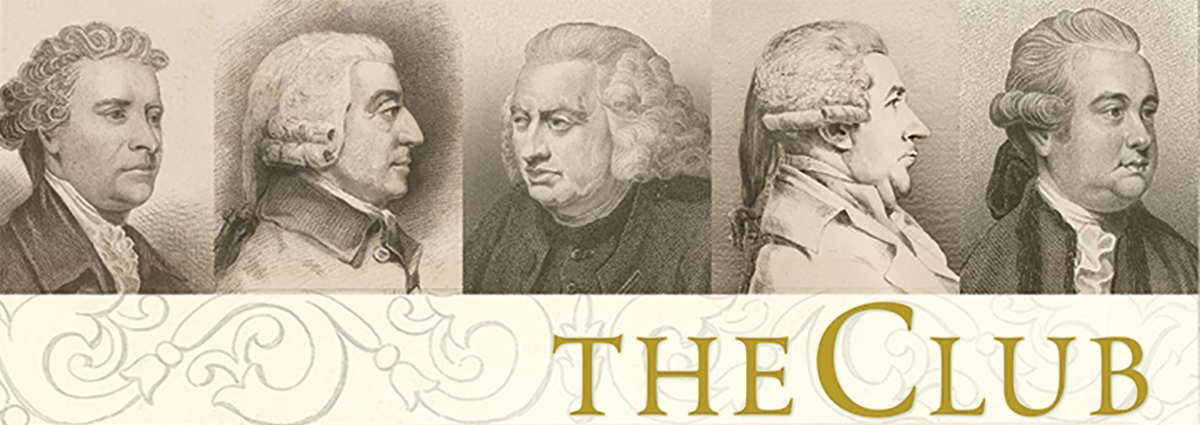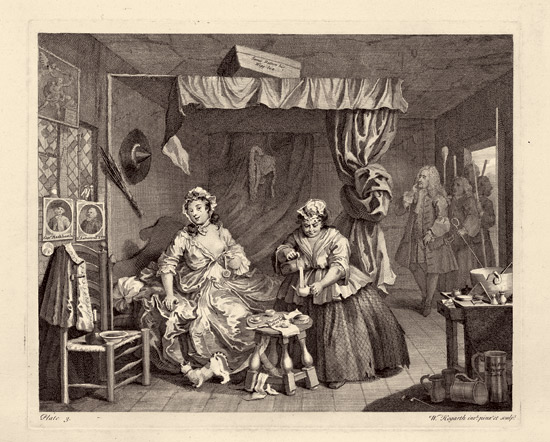There's also a lot of deepfelt Christianity, probably because the novel primarily functions as a persuasive tract, and-- as Annette Gordon Reed explains in her New Yorker piece “UNCLE TOM’S CABIN” AND THE ART OF PERSUASION: How Harriet Beecher Stowe helped precipitate the Civil War:
By the eighteen-thirties, Southerners were offering the country a new vision of slavery, as a positive good ordained by God and sanctioned by Scripture. Naturally, abolitionists in the North believed that the Bible told them the opposite: slavery offended the basic tenets of Christianity. Each claimed moral authority, hoping to win over the vast majority of citizens who were not activists on either side. Nothing would change in either direction without the support of these uncommitted and wavering citizens. They had to be persuaded that slavery, one way or another, had moral implications for everyone who lived on American soil.
This was the country that Harriet Beecher Stowe addressed in 1852 when she published “Uncle Tom’s Cabin; or Life Among the Lowly,” one of the most successful feats of persuasion in American history. Stowe’s novel shifted public opinion about slavery so dramatically that it has often been credited with fuelling the war that destroyed the peculiar institution. Nearly every consideration of Stowe mentions what Abraham Lincoln supposedly said when he met the diminutive New Englander: “Is this the little woman who made this great war?”
You can read all day and night about the merits and flaws of this novel. I read the book because Tyler Cowen mentioned how excellent it is, and I trust him. But opinions vary. One thing I can say for certain is that the derogative term "Uncle Tom" has been decoupled from the character in the novel.
Currently, "Uncle Tom" is a black person who sells out his race and is excessively obedient and servile to the powers that be. Even Urban Dictionary recognizes that this is a bastardization of the term. This is probably because of the many piss-poor overly melodramatic stage performances of the novel that made Uncle Tom into a fawning sycophant.
Currently, "Uncle Tom" is a black person who sells out his race and is excessively obedient and servile to the powers that be. Even Urban Dictionary recognizes that this is a bastardization of the term. This is probably because of the many piss-poor overly melodramatic stage performances of the novel that made Uncle Tom into a fawning sycophant.
The "real" Uncle Tom is only servile to his faith, to Jesus and Christianity. He dies a martyr, at the hands of the wickedly callous slaveholder Simon LeGree, because he refuses to give information about Cassy and Emmeline (a pair of runaway slaves). LeGree whips him to death because Tom won't give in to his power . . . because Tom won't be servile to his master. Tom's faith enrages LeGree and causes him to destroy a valuable asset.
James Baldwin was pissed off about Uncle Tom's passivity in the face of evil-- and this foreshadows the whole Malcolm X vs. MLK conflict over tactics in the Civil Rights Movement. Passive resistance vs. violent uprising. The high road vs. vengeance.
Stowe presents a colorful continuum of slaves and slave-owners. There are slaves escaping to Canada to work and be self-sufficient. Slaves escaping into the swamps, slaves crossing icy rivers by way of slippery floes. There is Sambo, a slave that terrorizes other slaves so that he can have some modicum of power. There are slaves being sold down-river, slaves being separated from their wives and children, slaves at market, slaves in the field, and slaves living in luxury in lavish homes. Slaves are sold for economic reasons and slaves are sold because their benevolent owners die.
There's also a wide variety of owners. The Shelby's are kind, especially Mrs. Shelby, but when push comes to shove they have to sell Tom to keep the farm. Then there are the typically callous and calculating slave-traders. The portrayal of Augustine St. Clare, the effete Southern Gentleman from Louisiana, who loves poetry and learning but can't seem to find faith is particularly affecting. He treats his slaves extraordinarily well, but can't find the moral compunction to free them. He embodies all the paradoxes of the Southern Man, civilized and kind, but he dies in a knife fight. And there's heroic little Eva and sickly, self-centered and abominable Marie.
St. Clare illustrates the powerful irony of the peculiar institution. He spoils his slaves and lets them have the run of his luxurious mansion. But in doing so, he allows the institution to carry on. He can't bring himself to take action, to become moral and faithful, despite the pleading of his Vermonter cousin Miss Ophelia (who grapples with and defeats prejudice of her own). If all owners were repugnant like Simon LeGree, the slaves would revolt and the abolitionists would have had all the fodder they needed to end the practice. But the benevolent owners actually did the cause harm, and Stowe points this out with the irony of St. Clare's character.
Controversial and stereotypical or not, Uncle Tom's Cabin is a novel full of memorable people-- and that's all you can ask for in a book. It may be intended more as a persuasive missive, the language is sometimes flowery, and the scenes can be overly-long-- little Eva's dying takes forever!-- but the book is well worth the time. The characters-- based on actual stories from Stowe's life and experience-- are larger than life. That's why they became stereotypes-- they are profound, abundant in American culture, and resonant-- and it's important to spend some time with the origin of these stock roles, not just the generative simplification and deterioration of them that time inevitably produces.
In the end, the book will make you contemplate the ultimate question: what is freedom? You could have been born a slave. You could have been born a battery in the Matrix. You could have been born a king or a queen or a serf or an untouchable. And once you are born, how much control do you really have over your fate? Do we deserve any of our gains? The very freedom to succeed, persevere, and accomplish is based on the fact that we are indeed born free, born into freedom. It didn't have to be this way. And-- not very long ago-- it wasn't a definite.
If you want to join my Black History Month book club, I've just gotten started on Walter Mosley's Devil in a Blue Dress. I plan on reading most of the Easy Rawlins sequence of novels. I might even do it before February ends-- it's a Leap Year.




























